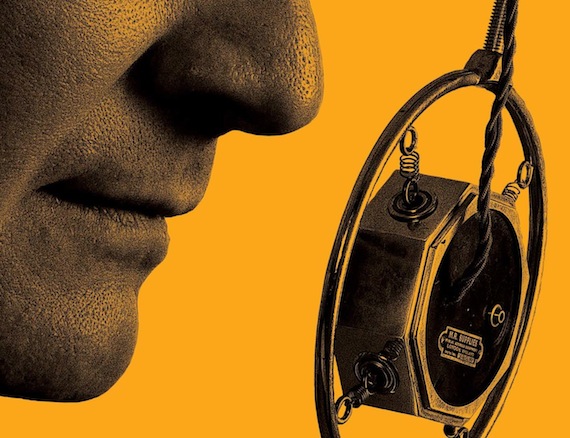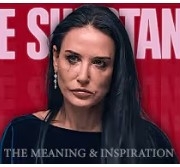Fox Searchlight proves that audiences want original stories
A few months back, I was preparing a proposal that listed the box-office performance of several films, including The King’s Speech. I knew that the film did quite well, but I was shocked to learn that it grossed a whopping $440 million worldwide! To put that into perspective, this quiet, character-driven period drama with stuffy British accents outgrossed Tron: Legacy, Star Trek (2009) and The Adventures of TinTin!
The reason? It’s an excellent film with a great story, smart dialogue and relateable characters who find themselves in extreme circumstances.
Yes, it also had the benefit of a Harvey Weinstein-powered Oscar campaign, but there’s one or two films in that category each year (The Artist and My Week With Marilyn are the two contenders this year from The Weinstein Company) and most don’t even come close to this level of success. It was the right story at the right time and it captured a huge audience share.
The King’s Speech is not a sequel. It’s not a “franchise film.” It had a miniscule budget when compared to most studio films with star talent. It’s not based on a “branded” pop-culture figure (unless you’re a huge King Edward the whatever fan, I suppose). And CGI was only used to render photo-realistic backgrounds.
And yet, it out-performed most big-budget Hollywood movies that came out that year (or any year). Did it all start with the foundation of a great idea and a great script? It sure looks like it, and I think that’s very encouraging news when it comes to the state of screenwriting in the industry.
I’ve been thinking a lot lately about the major movie studios’ obsession with “franchise films,” and how new screenwriters can fit into this entertainment landscape. This hot topic has come up a lot in the press lately, due to stories about weak summer box-office performance, the emergence of new platforms and financiers of scripted television (e.g., Netflix, Hulu and YouTube are all launching original content, with Amazon and maybe even Apple dipping a toe in the water, soon) and the recent announcement of the death of Universal’s deal with toy maker Hasbro.
So are audiences sick of big-screen amusement park rides, many of which are merely glorified commercials for merchandise? (If you want to do some digging, there’s a publicly posted stockholder’s audio call on Disney’s site in which the CEO mentions that merchandise from Cars has surpassed that of Star Wars! I’m betting this was the main motivation behind the green-lighting of Cars 2 and, yes, the upcoming Cars 3. It definitely wasn’t motivated by the abysmal reviews and disappointing returns for Cars 2, when compared to most Pixar films. It’s interesting to note that this is the first year in which a Pixar film is not nominated for a Best Animated Film Oscar.).
So which companies are willing to take risks on good material? We all know that Fox Searchlight is one of the most successful movie studios to produce and distribute low-budget fare, but I didn’t know how low their budgets really were, until I saw this article from Deadline Hollywood. Here’s my favorite part:
Slumdog Millionaire, a $15 million film that was nearly relegated to a direct-to-video fate by Warner Bros, won eight Oscars including Best Picture, and grossed $141 million domestic and $378 million worldwide; Black Swan, a $13 million film that flatlined several times during the 10 years it took to get made, grossed $107 million domestic and $329 million worldwide and won Best Actress for Natalie Portman; Once, an obscure Irish film that cost $150,000 to make, won Best Song and grossed $9.4 million stateside and $20.7 million worldwide; Crazy Heart, a $9 million film about a drunk singer, won Best Actor for Jeff Bridges and grossed $39 million domestic and $47 million worldwide; the $7.5 million Juno won Best Screenplay for Diablo Cody, and grossed $143 million domestic and $231 million worldwide.
Wow. Impressive, huh? Maybe audiences really do have taste in movies.
It’s a very interesting time we’re living through, as entertainment is going through a big transition, mostly driven by new digital delivery systems. But what becomes more and more clear every day is that audiences still want scripted content, whether it’s in the form of TV, films or webisodes. Which makes this a great time to say…
Good Luck and Happy Writing,
Dan
“There is a lot of great advice here…
Most important, as I read Calvisi’s Story Maps,
I was inspired to rethink my current project.
And that’s what it’s all about, right?”
-Script Magazine
“Dan’s book will help you
do what you must do to
succeed with your screenplay.”
-Ken Dancyger, Author of
Broadcast Writing, Alternative Scriptwriting,
and The Technique of Film and
Video Editing (Focal Press)




Leave a Reply
Want to join the discussion?Feel free to contribute!